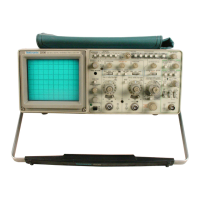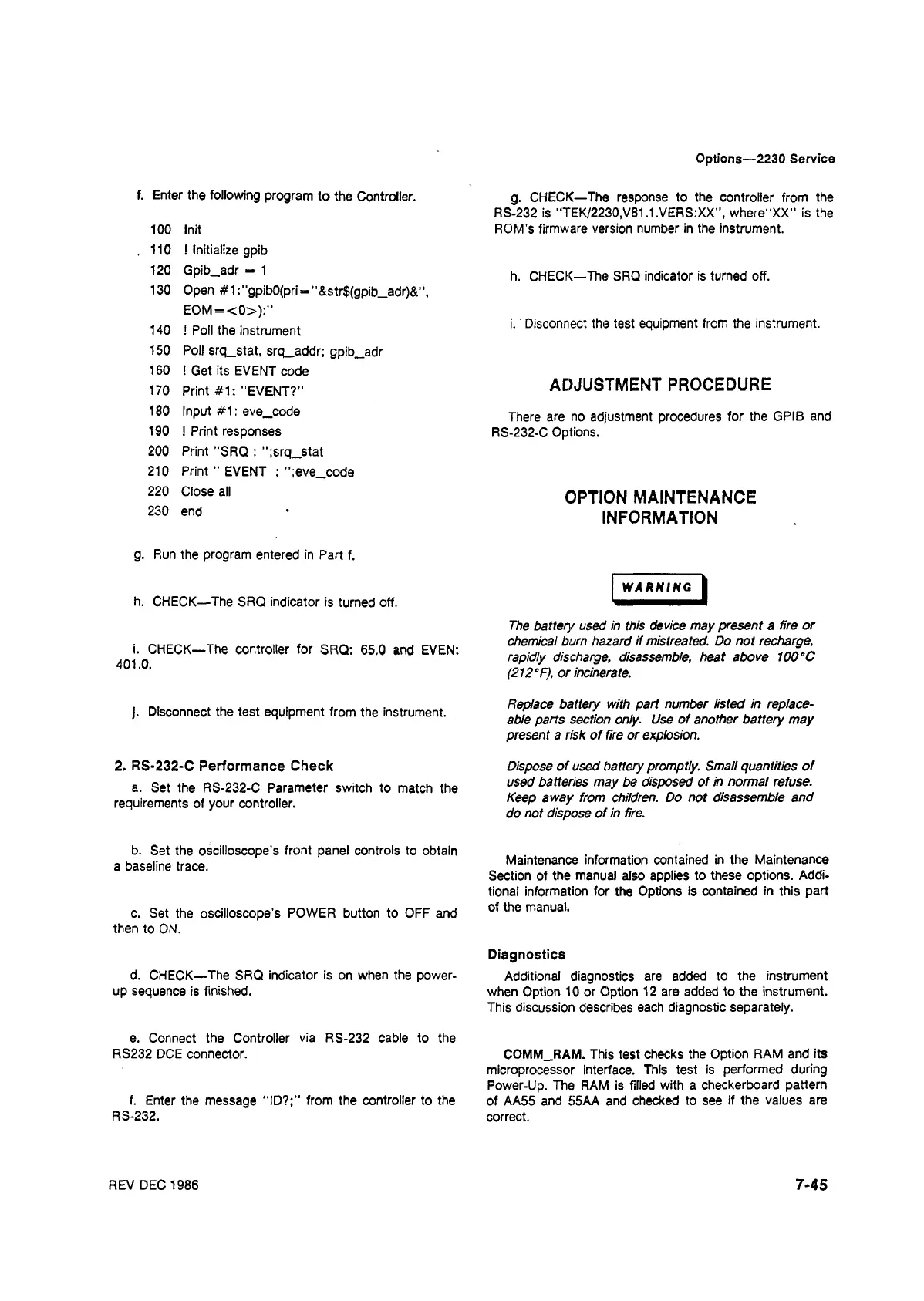f. Enter the following program to the Controller.
100 Init
. 110 ! Initialize gpib
120 Gpib_adr = 1
130 Open #1:"gpibO(pri="&str$(gpib_adr)&” ,
EOM = < 0> ):”
140 ! Poll the instrument
150 Poll srq_stat, srq_addr; gpib_adr
160 I Get its EVENT code
170 Print # 1 :’'EVENT?"
180 Input #1: eve_code
190 I Print responses
200 Print ” SRQ : ” ;srq_stat
210 Print ’’ EVENT : ";eve_code
220 Close all
230 end
g. Run the program entered in Part f.
h. CHECK—The SRQ indicator is turned off.
i. CHECK—The controller for SRQ: 65.0 and EVEN:
401.0.
j. Disconnect the test equipment from the instrument.
2. RS-232-C Performance Check
a. Set the RS-232-C Parameter switch to match the
requirements of your controller.
b. Set the oscilloscope’s front panel controls to obtain
a baseline trace.
c. Set the oscilloscope's POWER button to OFF and
then to ON.
d. CHECK—The SRQ indicator is on when the power-
up sequence is finished.
e. Connect the Controller via RS-232 cable to the
RS232 DCE connector.
f. Enter the message ‘‘ID?:’’ from the controller to the
RS-232.
Options—2230 Service
g. CHECK—The response to the controller from the
RS-232 is ’TEK/2230,V81.1.VERS:XX", where"XX” is the
ROM’s firmware version number in the instrument.
h. CHECK—The SRQ indicator is turned off.
i. Disconnect the test equipment from the instrument.
ADJUSTMENT PROCEDURE
There are no adjustment procedures for the GPIB and
RS-232-C Options.
OPTION MAINTENANCE
INFORMATION
WARMING
The battery used in this device may present a fire or
chemical burn hazard if mistreated. Do not recharge,
rapidly discharge, disassemble, heat above 100°C
(212°F), or incinerate.
Replace battery with part number listed in replace
able parts section only. Use of another battery may
present a risk of fire or explosion.
Dispose of used battery promptly. Small quantities of
used batteries may be disposed of in normal refuse.
Keep away from children. Do not disassemble and
do not dispose of in fire.
Maintenance information contained in the Maintenance
Section of the manual also applies to these options. Addi
tional information for the Options is contained in this part
of the manual.
Diagnostics
Additional diagnostics are added to the instrument
when Option 10 or Option 12 are added to the instrument.
This discussion describes each diagnostic separately.
COMM_RAM. This test checks the Option RAM and its
microprocessor interface. This test is performed during
Power-Up. The RAM is filled with a checkerboard pattern
of AA55 and 55AA and checked to see if the values are
correct.
REV DEC 1986
7-45

